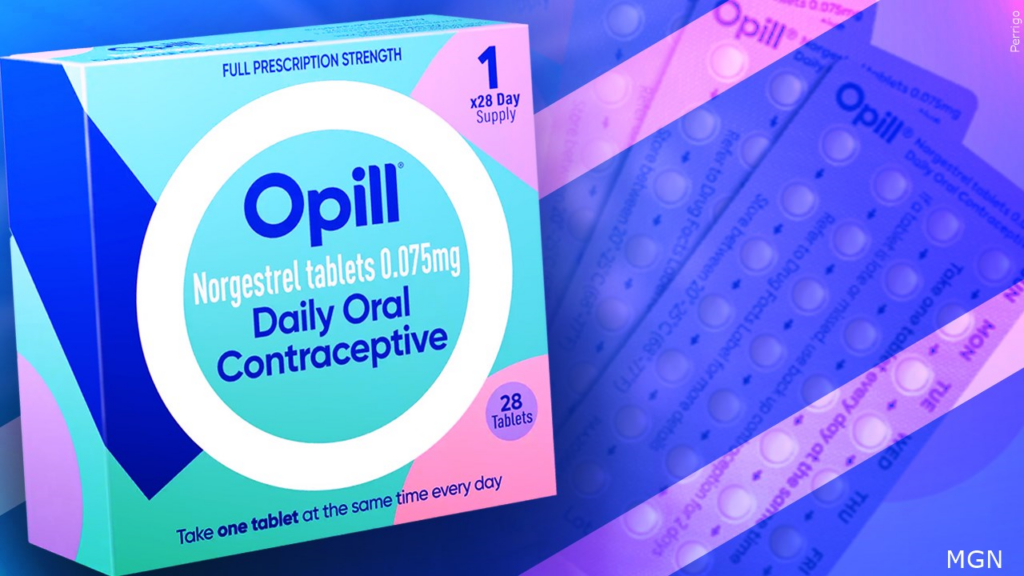Over-the-Counter Birth Control: Increased Access And Its Implications

Table of Contents
Increased Accessibility and Convenience
Making birth control available over-the-counter promises to revolutionize access to family planning. This increased accessibility offers numerous advantages, particularly for underserved populations and those seeking greater convenience and discretion.
Improved Access for Underserved Populations
Over-the-counter contraception could be transformative for women in rural areas, low-income communities, or those lacking consistent healthcare access. Currently, accessing birth control often involves significant hurdles:
- Reduced travel costs and time: Eliminating the need for doctor's visits saves time and money, especially for those living far from healthcare facilities. This is particularly relevant for those in rural communities where access to healthcare is limited.
- Elimination of appointment scheduling: Scheduling appointments can be difficult, especially for those with demanding work schedules or limited childcare. OTC birth control removes this barrier, making contraception readily available.
- Removal of insurance barriers: Many women lack health insurance or have limited coverage for contraceptives. OTC birth control bypasses insurance requirements, making affordable birth control a reality for more people. This increase in accessible family planning options is crucial for equitable healthcare.
Enhanced Convenience and Discreetness
Purchasing birth control like any other everyday medication offers significant convenience and privacy advantages:
- Shopping at preferred times: Women can purchase birth control at their convenience, without the constraints of doctor's office hours. This flexibility enhances overall convenience.
- Avoiding potentially stigmatizing doctor's visits: For some women, discussing contraception with a doctor can be uncomfortable or stigmatizing. OTC access offers a more private and discreet option.
- Increased privacy: Purchasing birth control at a pharmacy maintains privacy compared to a potentially more public doctor's visit. This is particularly important for those who prefer to keep their reproductive health decisions private. Convenient birth control enhances personal autonomy and choice.
Potential Impacts on Public Health
The impact of over-the-counter birth control on public health is complex, with both potential benefits and risks.
Reduced Unintended Pregnancies
Increased access to over-the-counter contraception has the potential to significantly reduce unintended pregnancies:
- Increased contraceptive use leading to lower pregnancy rates: Wider availability could encourage more consistent contraceptive use, leading to fewer unintended pregnancies.
- Improved reproductive health outcomes: Reduced unintended pregnancies translate to better reproductive health outcomes for women, including fewer abortions and healthier pregnancies. This positive impact on reproductive health is a significant potential benefit of increased access. Over-the-counter contraception effectiveness could be enhanced with improved education programs.
Increased Rates of Contraceptive Use
The ease of access could lead to higher overall contraceptive usage:
- More women using contraception consistently and correctly: Convenient access can make it easier to maintain consistent and correct contraceptive use, reducing the risk of pregnancy.
- Higher birth control adoption rates: Increased accessibility may encourage women who previously did not use contraception to adopt a method, leading to a decline in unintended pregnancies. Consistent contraceptive use is key to improving reproductive health outcomes.
Potential for Misuse and Increased Risk
While increased access offers many advantages, it's crucial to address the potential downsides:
- Importance of clear instructions and patient education: Comprehensive instructions and readily available information on proper usage are essential to minimize misuse and potential adverse effects.
- Potential for adverse effects with improper use: Incorrect use can reduce the effectiveness of the birth control and may even lead to health complications. Safe over-the-counter birth control relies heavily on user education and clear labelling.
- Need for readily available information: Access to reliable information about various contraceptive methods, their effectiveness, and potential side effects is crucial to ensure responsible contraceptive use.
Economic Implications
The shift to over-the-counter birth control carries significant economic implications for individuals, the healthcare system, and the pharmaceutical industry.
Cost Savings for Individuals and the Healthcare System
OTC birth control has the potential to save money for both individuals and the healthcare system:
- Lower healthcare costs associated with unintended pregnancies: Reduced unintended pregnancies translate to lower costs associated with prenatal care, childbirth, and postnatal care.
- Reduced reliance on more expensive methods of family planning: OTC options may be more affordable than other methods, leading to cost savings for individuals. Affordable birth control options are key to expanding access to family planning services.
Impact on Pharmaceutical Companies and Healthcare Providers
The change to OTC access will likely affect pharmaceutical companies and healthcare providers:
- Changes in business models: Pharmaceutical companies will need to adapt their marketing and distribution strategies for OTC birth control.
- Potential changes in healthcare provider roles: Healthcare providers may see a shift in their roles, potentially focusing more on counseling and education regarding contraceptive use.
- Market dynamics: The market for birth control could see significant changes with increased competition and potentially lower prices. The birth control market will undoubtedly evolve with increased OTC availability.
Conclusion
The debate surrounding over-the-counter birth control highlights a complex interplay of accessibility, public health, and economic factors. While increased access offers the potential for reduced unintended pregnancies, improved reproductive health, and cost savings, it also raises concerns about misuse and the need for robust patient education. Understanding the implications of over-the-counter birth control is crucial for informed decision-making. Learn more about responsible access to contraception and advocate for policies that support women's reproductive health. The future of over-the-counter birth control hinges on responsible implementation and a commitment to ensuring safe and effective access for all.

Featured Posts
-
 Lvmh Shares Plummet Q1 Sales Miss Expectations
May 25, 2025
Lvmh Shares Plummet Q1 Sales Miss Expectations
May 25, 2025 -
 Yevrobachennya Shlyakh Do Slavi Ta Zhittya Pislya Peremogi Ostanni 10 Rokiv
May 25, 2025
Yevrobachennya Shlyakh Do Slavi Ta Zhittya Pislya Peremogi Ostanni 10 Rokiv
May 25, 2025 -
 Mathieu Avanzi Redefinir L Enseignement Du Francais
May 25, 2025
Mathieu Avanzi Redefinir L Enseignement Du Francais
May 25, 2025 -
 Melanie Thierry Biographie Et Filmographie Complete
May 25, 2025
Melanie Thierry Biographie Et Filmographie Complete
May 25, 2025 -
 Craig Mc Ilquham Hells Angels Details Of Sundays Memorial Service
May 25, 2025
Craig Mc Ilquham Hells Angels Details Of Sundays Memorial Service
May 25, 2025
